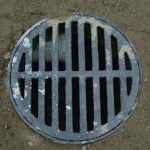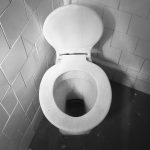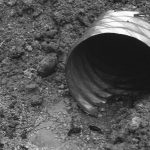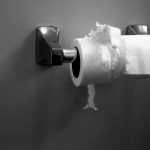We rely on our home plumbing systems every day and yet most people don’t understand how they work. This is natural because it can take years to become a certified and licensed plumber with sufficient experience to tackle plumbing problems. Plumbing systems are complex, they need regular maintenance and they can release a lot of water if they become compromised. Over the years, a number of plumbing myths have surfaced that are simply inaccurate. In this article, we will debunk eight common plumbing misconceptions.
1. Deodorizing the Garbage Disposal with Lemon Peel
Lemon peel smells clean and fresh, but it should not be placed in the garbage disposal to “deodorize” the system. This is an ineffective tactic and the peel can even cause blockages in the system. In fact, the high levels of citric acid sitting in the garbage unit could even cause corrosion. If you want to clean the garbage disposal pour in a cup of baking soda followed by a cup of white vinegar and a chemical reaction will take place. Leave the mixture to foam for around 20 minutes, then pour some hot (not boiling) water in the drain and it should smell clean and fresh. If you want a citrus odor, try adding a few drops of your favorite citrus scented essential oil.
2. Sharpening Garbage Disposal Blades with Ice Cubes
Many believe this myth, but according to most plumbing experts this tactic is ineffectual. In fact, most modern garbage disposal don’t even have blades to sharpen. They use a pair of impellers that grind the food waste up and adding ice may even hinder their operation. If you want to help your garbage disposal to work more efficiently, avoid placing fats, oil, grease, coffee grinds, bones and eggshells in the unit. Place those items in the trash where they belong and your unit will be less prone to failures.
3. Animals Cannot Invade a Home via the Toilet
A snake or rat could access your home via the toilet system. But before you become too concerned, it should be understood that this is an extremely rare occurrence. If this happens to you, contact an exterminator and they can handle the problem for you.
4. Flushable Wipes are Safe to Use
Flushable cleaning wipes are a very common cause of blockages in home drainage systems. A toilet is only designed to handle toilet paper and human waste. Any other items that are flushed represent a potential clogging risk and should be placed in the trash. Even kitchen towels are too thick and they don’t break down quickly unlike toilet paper.
5. A Dripping Faucet Doesn’t Waste Much Water
It’s easy to understand why people would believe this, but you may be surprised at the volume of water that can be wasted on a typical day. If you want to test this theory, place a plug in the affected sink or tub and leave it for an hour. When you return the volume of water held there is how much water you are losing every single hour. Over an entire year, this leaky faucet and other water leaks could be making a huge dent in your wallet. Fixing a leaky faucet is pretty easy if you have basic DIY skills, but hidden water leaks can only be located by your local professional plumber.
6. Toilet Bleach Tablets can be Left in the Toilet
Bleach is a very effective toilet cleaner, but it must be flushed within 10 minutes of the application. Many people drop a bleach tablet in their toilet and leave it until the entire tablet has dissolved. They may even do this at night and leave it there until it’s flushed in the morning. This is a bad idea because bleach can damage the toilet components and even cause corrosion. This can lead to an unexpected and expensive repair bill.
7. Pouring Boiling Water into a Clogged Drain will Clear it.
Drain clogs are an annoyance and they can be hard to remove safely. The core of many drain clogs is an accumulation of fats and oils that have formed into a solid clog. This sticky material attracts other debris and it gradually grows to fill the drain pipe. The best way to deal with this problem is to adopt a proactive approach and keep all fats and oils out of the drain. But, if you need to clear a clog you can try the baking soda and vinegar method discussed earlier in this article. Pouring boiling water into the drain can cause damage and it will not be an effective solution. The drain clog may melt slightly, but it will harden again and it may even be harder to remove. A professional plumber will always prefer a manual removal method using an augur (plumbing snake) or hydro jetting.
8. When a Water Heater Rumbles, it’s Starting to Fail
Under normal operation conditions, you can expect your water heater to make a certain amount of noise. This can include rumbling and this is especially true if you have an older model installed in your home. The rumbling noise is usually caused by an accumulation of sediment that has collected in the bottom of the water storage tank. As the water is heated, bubbles are released, they pass through the sediment and this sounds like rumbling. It may be possible to flush the water clean, but with older units, it makes more financial sense to replace them with a more efficient model. A water heater will continue to work safely until it begins to interfere with electrical connections. At this point, you should contact your local licensed and certified plumber and ask about a replacement.
In Conclusion
As you can see, many common myths about plumbing systems are simply not true. Some potential problems can be avoided with a proactive approach and preventative maintenance is the best way to keep your plumbing system working efficiently. Learning more about your plumbing system is admirable, but more complex tasks should be handled by your local plumber.





